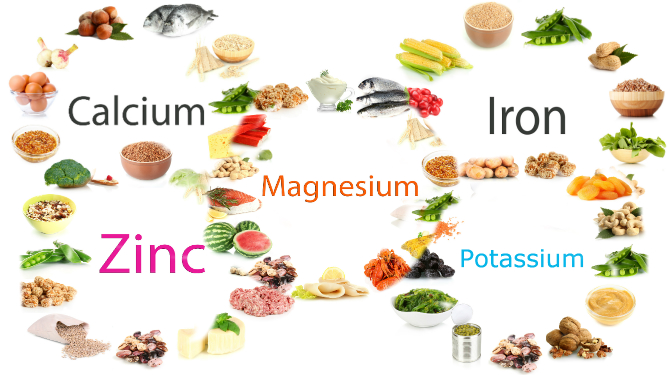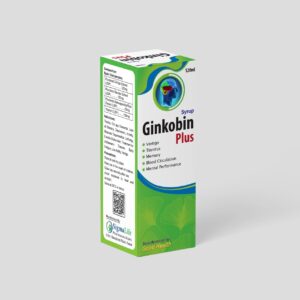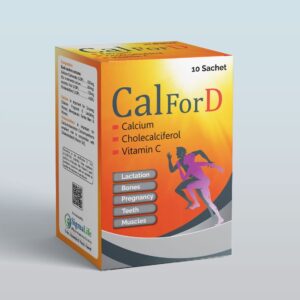The Role of Vitamins and Minerals in Maintaining Health: A Comprehensive Guide
Vitamins and minerals are crucial to maintaining optimal health and well-being. They support various bodily functions, enhance the immune system, and help prevent chronic diseases. At SigmaLife, we emphasize the importance of incorporating essential vitamins and minerals into your daily routine. This article will explore the roles of these nutrients, highlight their benefits, and guide you in choosing the right supplements for your health needs.
1. Understanding Vitamins and Minerals
Vitamins and minerals are essential nutrients that our bodies need in small amounts to function properly. They play diverse roles in maintaining health, from boosting immunity to supporting bone health.

What Are Vitamins?
Description: Vitamins are organic compounds that are necessary for various physiological processes.
Types of Vitamins:
- Fat-Soluble Vitamins: Includes Vitamins A, D, E, and K. These are stored in body fat and are used as needed.
- Water-Soluble Vitamins: Includes Vitamin C and all B vitamins. These are not stored in the body and must be consumed regularly.
External Resource: Learn more about vitamins and their functions from the National Institutes of Health (NIH) Office of Dietary Supplements.
What Are Minerals?
Description: Minerals are inorganic elements that help with various body functions, including bone formation and nerve transmission.
Types of Minerals:
- Macrominerals: Includes calcium, potassium, and magnesium. Needed in larger amounts.
- Trace Minerals: Includes iron, zinc, and selenium. Required in smaller amounts but are equally important.
External Resource: Explore mineral functions and sources on the World Health Organization (WHO) website.
2. Essential Vitamins and Their Benefits
Understanding the benefits of each vitamin can help you ensure you’re getting enough of these crucial nutrients.
Vitamin A
Benefits: Supports vision, immune function, and skin health.
Sources: Carrots, sweet potatoes, and leafy greens.
External Resource: Find more about Vitamin A’s benefits from the Mayo Clinic.
Vitamin C
Benefits: Enhances immune function, promotes healthy skin, and aids in wound healing.
Sources: Citrus fruits, strawberries, and bell peppers.
External Resource: Learn about Vitamin C’s role in health on Healthline.
Vitamin D
Benefits: Supports bone health by aiding calcium absorption and modulates immune function.
Sources: Sun exposure, fortified dairy products, and fatty fish.
External Resource: Discover Vitamin D’s impact on health through WebMD.
3. Essential Minerals and Their Benefits
Minerals are vital for maintaining various bodily functions. Here’s a look at some essential minerals and their benefits.

Calcium
Benefits: Crucial for bone health and muscle function.
Sources: Dairy products, leafy green vegetables, and fortified plant-based milks.
External Resource: Read more about Calcium’s benefits on the National Osteoporosis Foundation.
Iron
Benefits: Essential for oxygen transport in the blood and energy metabolism.
Sources: Red meat, beans, and fortified cereals.
External Resource: Learn about Iron’s role in health from MedlinePlus.
Magnesium
Benefits: Supports muscle and nerve function, regulates blood sugar levels, and contributes to bone health.
Sources: Nuts, seeds, and whole grains.
External Resource: Find more about Magnesium’s health benefits on NIH’s Magnesium Fact Sheet.
4. How to Ensure Adequate Vitamin and Mineral Intake
Achieving optimal health involves ensuring you get the right amounts of vitamins and minerals daily. Here are some tips to help you meet your nutritional needs.
Balanced Diet
Description: Consuming a variety of foods from all food groups ensures you get a broad range of nutrients.
Tips:
- Eat a Rainbow: Incorporate colorful fruits and vegetables to cover different vitamin and mineral needs.
- Include Whole Grains: Choose whole grains over refined grains to boost your mineral intake.
External Resource: Explore the principles of a balanced diet on ChooseMyPlate.gov.
Supplementation
Description: When diet alone isn’t enough, supplements can help bridge nutritional gaps.
Tips:
- Choose Quality Supplements: Look for supplements that are third-party tested and adhere to Good Manufacturing Practices (GMP).
- Consult Healthcare Providers: Discuss with a healthcare provider before starting any new supplements.
Internal Link: Explore SigmaLife’s high-quality supplements designed to support your health here.
5. Conclusion
Vitamins and minerals play pivotal roles in maintaining health and preventing disease. By understanding their functions and ensuring you get adequate amounts through diet and supplements, you can support your overall well-being. At SigmaLife, we are committed to providing top-quality supplements to help you meet your nutritional needs effectively.






